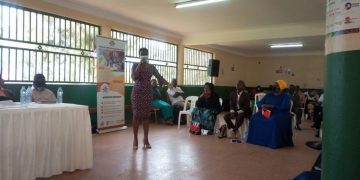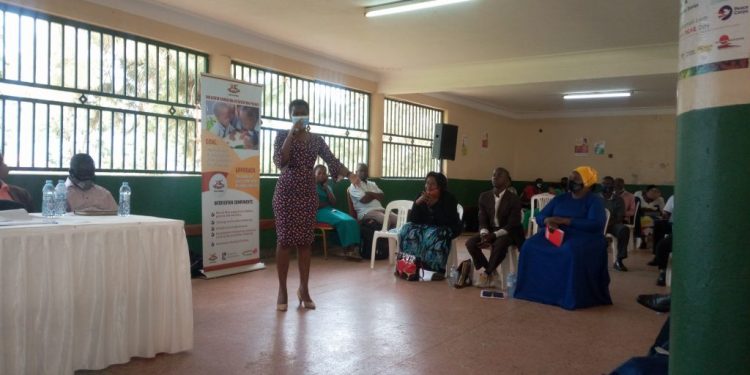The Spina Bifida and Hydrocephalus Association of Uganda (SHAU) has trained teachers, health workers and parents on safe handling of children leaving with Spina Bifida and Hydrocephalus.
This was during a stakeholders’ meeting organized by the association in Nsambya aimed at reflecting on the progress, challenges and the possible solution to betterment of the children’s lives.
SHAU National Coordinator, Ruth Nalugya said that the stakeholders meeting is aimed at promoting inclusive education, health and rehabilitation and human rights advocacy.
Nalugya said that this event is held every year towards the end of year in order to reflect on the progress and identify the gaps then brainstorm together on the way forward in the coming year.
Nalugya noted that a number of health workers have a wrong attitude towards children with Spina Bifida and Hydrocephalus who always turn them away when they seek for general medical services.
“Most of the medical workers turn away children who go to the health facilities to seek medical services like immunization which is not related to their condition,” Nalugya said.
Nalugya called upon parents to desist from calling their children a curse simply because they are born with Spina Bifida and Hydrocephalus.
Sarah Namyalo a Clinical Officer at6 Kitebi health Centre III, admitted that indeed children with hydrocephalus and Spine Bifida have sometimes missed out on health services because of the level of the health facility and also the knowledge gap of the health workers.
Namyalo thus urged the medical officer to always treat them from any other kind of diseases other that is not related to their disability condition.
Emmanuel Asingiza a teacher appreciated SHAU for the training knowing that the training will effectively help them in handling, teaching and caring for them.
Dr. Pamela Nzeeyimana an official from the ministry of education and sports in the department of special needs and inclusive education revealed that the ministry has already included a special needs and inclusive education course unit in all primary school teachers’ training colleges.
Nzeeyimana said that the training enables teachers who complete the course to come out with the skills and knowledge on how to plan, identify and support children with disabilities.
She added that the ministry of education is also developing the Uganda national institute for teacher’s education under which a program for special needs has been developed and teachers will come out with skills to teach all children with disabilities.











